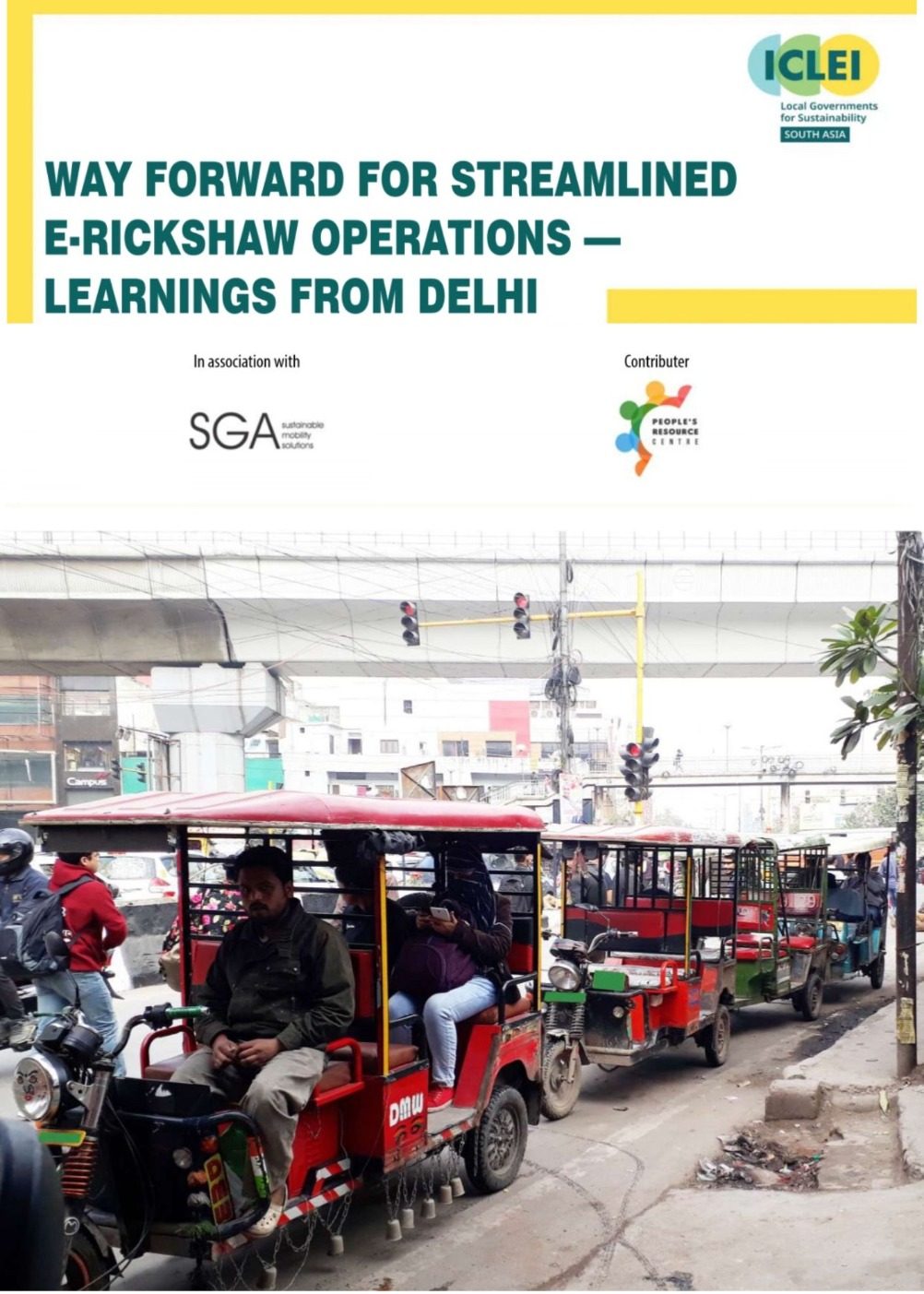The People’s Resource Centre (PRC) has played an instrumental role in contributing to developing and enhancing the urban transport network in Delhi over the past few decades, with a strong focus on promoting equitable and sustainable mobility solutions. As part of these ongoing efforts, the PRC supported an important initiative, contributing to the ICLEI- Local Governance for Sustainability Report on Electric Rickshaws (E-Rickshaws) in Delhi. In this context, the PRC’s role involved providing crucial fieldwork support and participating in data collection activities to help produce a comprehensive analysis of the E-Rickshaw sector in the city. The Climate Works Foundation funded this collaborative project. It was carried out in partnership with Sandeep Gandhi Architects and researchers from PRC, highlighting the collective effort to address key urban mobility challenges through data-driven insights.
Key findings from the report provide a critical understanding of the issues plaguing the E-Rickshaw sector in Delhi. One of the most alarming findings is that approximately 14% of E-Rickshaws in Delhi are unregistered, with many operators failing to comply with existing government regulations. This issue reflects the broader challenges the rickshaw sector faces, where most operators tend to operate outside the formal regulatory framework. Another significant concern the report raises is the stringent regulatory environment, coupled with high operational costs. The lack of accessible subsidies and the inaccessibility of existing subsidy programs further exacerbate the challenges for E-Rickshaw operators. This regulatory and financial burden makes it difficult for the sector to thrive and achieve the desired outcomes of sustainable urban mobility.
A critical economic barrier identified in the report is the high cost of insurance, which discourages operators from renewing their policies beyond the first year, leading to lapses in insurance coverage. This, in turn, impacts the overall maintenance and safety of the rickshaws, which are crucial for ensuring the reliability of this eco-friendly transportation option. The report also highlights the high demand for E-Rickshaw, with operators expressing a strong desire for larger-sized vehicles to accommodate greater passenger loads and increase their earning potential.
Additionally, the report sheds light on the prohibitive cost of lithium-ion batteries, which are a key component of E-Rickshaws, and the lack of insurance coverage for these vehicles. Due to the high upfront costs of lithium-ion batteries, many operators resort to purchasing cheaper, hazardous lead-acid batteries, which are less efficient and pose environmental and safety risks. This reliance on substandard batteries compromises the overall performance and sustainability of the E-Rickshaw fleet.
Another noteworthy issue identified in the report is the restriction on E-Rickshaws from accessing arterial roads* in Delhi, which has led to the emergence of a corruption-driven cycle. As E-Rickshaws are often prevented from operating on major roads, operators face additional challenges such as increased bribes and illegal practices within the Greater Delhi National Capital Territory (GNCTD) system. This situation not only undermines the goals of promoting clean and efficient transportation but also erodes public trust in the regulatory system.
In conclusion, the report underscores the critical need for comprehensive reforms in the E-Rickshaw sector, including simplifying regulations, better access to subsidies, and introducing more affordable and sustainable battery options. By addressing these challenges, Delhi has the opportunity to further enhance its urban transport network and pave the way for a more equitable, sustainable, and efficient mobility future.
Report summary prepared by Sidhant Kumar, Research Associate.

